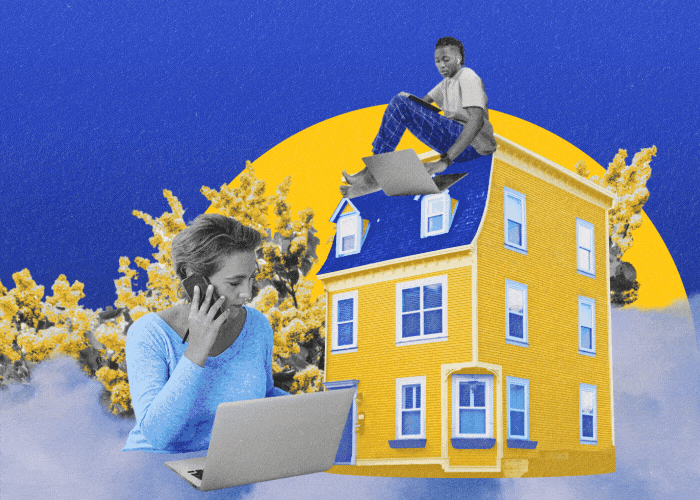There was no escaping Covid-19 in Italy earlier in the year. Concerns for personal safety alongside fears for friends, family and all people infiltrated the physical and emotional spaces that we inhabited.
We knew we needed to react immediately to send out a message of solidarity and support to the workforce. There was never a more critical time to lead by the principles of the culture that we were developing.
Equipped for uncertainty
While watching our employees rise to the challenge of working whilst facing daily adversity, we knew that we must also step up and adapt our methods to keep our people engaged and stimulated.
People engagement was already a focus: the leadership model we’d been operating under for some time is one of ‘leadership by design’, a collaboration between HR functions such as my team and over 300 managers to reinforce corporate identity and drive competitiveness through empowering and revitalising our employees. The result was that when the virus hit the country, we were ready to engage our people immediately.
The pillars of our leadership model – vision, passion, courage, leading-by-example and empowerment – represented a shift away from the old ‘employee/employer’ culture, and onto a new entrepreneurial model. In this way, when problems arise, the workforce feels not only impassioned about finding a solution, but confident that their ideas will be welcomed, and that the infrastructure exists to make ideas a reality.
Social learning
A focus for our people and development was our ‘social learning’ approach, a bespoke internal project designed to be flexible, tailored and dynamic. During the pandemic, we’ve revisited both the competencies required and the needs of our people to reflect the changing environment.
The basis for the approach is that the process of learning behavioural and technical skills is not only based on individual acquisition, but is the result of a shared interaction among participants’ experiences and knowledge within a community.
Our model represented a shift away from the old ‘employee/employer’ culture, and onto a new entrepreneurial model. In this way, when problems arise, the workforce feels not only impassioned about finding a solution, but confident that their ideas will be welcomed, and that the infrastructure exists to make ideas a reality.
Our platform, Human Academy, is a space that drives the social learning philosophy, not only as a central home for hundreds of courses, but as a content hub for everyone to share their work. Once new information is published, it becomes available for all to use, and becomes company heritage. In this way, we can inspire our people to keep an up-to-date and active role in learning both soft and technical skills.
With local lockdown rules in place, the platform has been a community hub not only for idea and knowledge sharing, but also for peer-to-peer development and review. It’s increased engagement, as well as enhancing the sense of belonging and attachment to the company culture.
Coaching without barriers
Concerns for personal and economic safety have necessitated in everyone a profound change of behaviours and habits. One HR initiative which responded to these often-stressful changes is Coaching Without Barriers, a daily group coaching session where people were invited to explore both their fears and their strengths.
Often, simply giving people the forum to express their concerns can offer great comfort – to know that they are heard, and that others may feel the same.
One technique used was the ‘POWER’ model, encouraging participants to:
Stay in the here-and-now (Present)
Fix individual and team goals (Objectives)
Define the strategy (Way)
Create an action plan (Execution)
Measure for continuous improvement (Results).
Coaching Without Barriers represented a moment of significant interaction and synergy, in a period of uncertainty.
Investing in our people has helped us weather the storm
The early investment made in creating a leadership model that allowed HR and other departments to operate as role models to the workforce has proven its value, and given a sense of orientation to people in the context of the crisis.
The Coaching Without Barriers project further enabled us to help our people develop the personal resilience that has been required to navigate this period.
Operationally, because of the soft skills of our people in the past seven months, we have seen no disruptions to completing projects for our customers in line with schedule and cost. There has been no Covid-19 impact on our P&L balance sheets, and alongside this, we have not had to ask for any social safety nets for business continuity.
Investing in our people truly paid off.
People first
“People First” is the core of our company culture at NTT DATA and this philosophy has proven itself over this last year.
Investment in the resilience and entrepreneurial spirit of your workforce, continuously rethinking ways of working and behaviours, anticipating changes, foreseeing future scenarios to promptly direct strategy and actions (recruiting, training, development), and creating the best workplace conditions are top priorities for those looking to invest in their human capital and enable their business to grow through change.
Facing the needs of the marketplace and our changing society was made possible by the early investment in company culture. Enabling our future leaders with adaptable skill-sets, which allow personal growth as well as technical and commercial expertise, has proven indispensable.



























